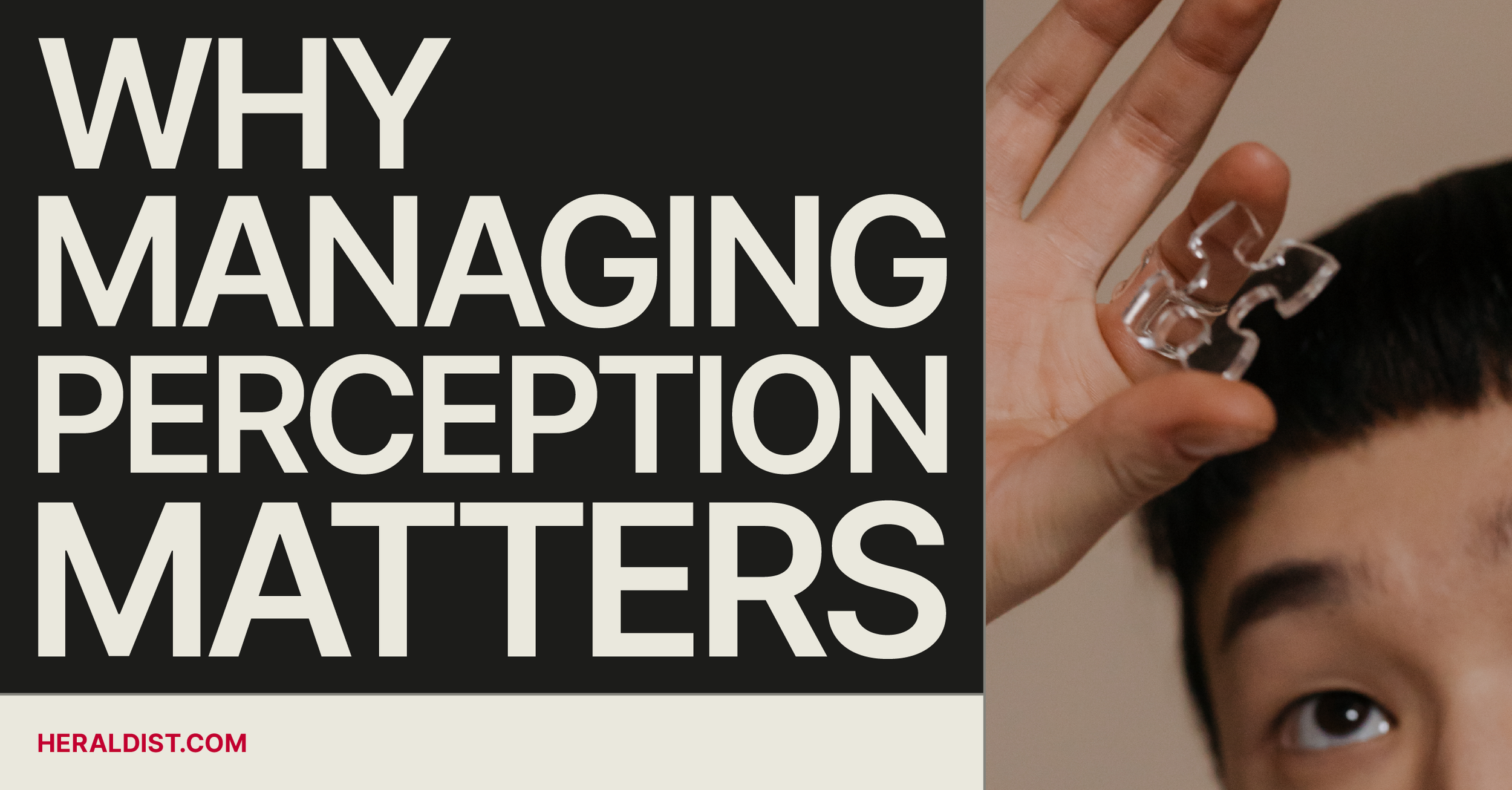Why Managing Perception Matters?
Because:
The best product is not always the most successful product. The product that is perceived to be the best is the most successful.
and because:
Good products need to develop into brands in order to thrive; you need to give people reasons to connect with you beyond the product features. If they relate only to the product features or price, these will be their only criteria when a slightly better or a slightly cheaper product comes along. A product is fragile in front of comparable products. A brand is not.
There’s another reason:
Before jumping to any execution (from logo to a pitch deck or a presentation website or a campaign), we must make an informed decision on how we want to be perceived. What is the imprint we want in our audience’s minds that would be relevant for them, true for what we do and different from our competitors? This is the gold nugget of information, the positioning, that will inform every decision onward.
Or think about this:
People are more likely to choose a product they have little information on from a brand that they’re familiar with than a product they have a lot of information on from a company that they have never heard of. Emotional connection will always beat product information.
This rule is true for B2C and B2B companies alike.
Here’s another argument:
95% of our decisions are emotional; reasoning jumps in after that split second when we make the decision just to make sure we’re not completely off track. Usually, we’re post-rationalising emotional decisions and we call them rational.
We need to connect to that emotional brain and give people reasons to like us and remember us.
And then this:
Usually startups come up with an innovative solution to a problem a group of people have. Those people are easily converted into customers from the very beginning. But in order to grow beyond that fabulous start, the solution needs to be sold to new audiences, people that are not aware of what they are missing. We cannot enter their lives and present a product; it will never matter. But we can enter their lives presenting a product that answers a human need, telling a human story, arousing an emotion. This is brand building communication and what it does is to put our company, products or services on the customers mental list so it’s there when they consider our category.
Or this:
The market value of well-run companies that build good products and complement them with strong brands is double than the market value of well-run companies that build good products but never invested in their brand, meaning in managing the perception people have of their company or product.
To me, any reason is as strong as their sum. Just pick your favorite argument and do something to manage the way you want to be perceived by your audience.
By Mirela Angelescu

